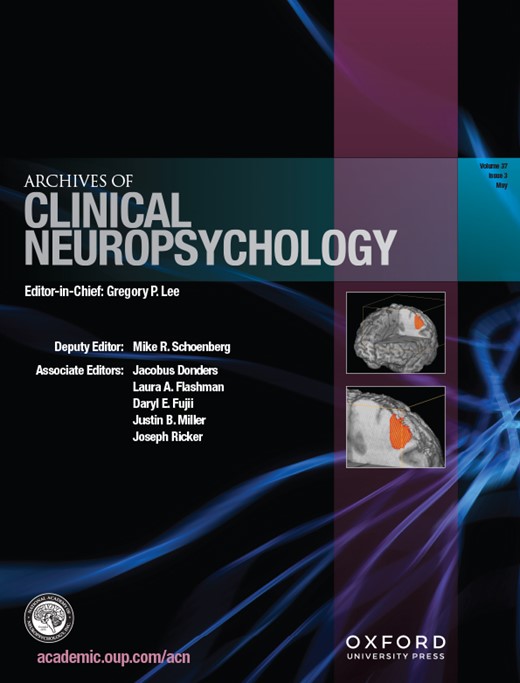-
Views
-
Cite
Cite
Rayna B Hirst, Ryan C Thompson, Yelena Markiv, Haig Pilavjian, Sana F Arastu, Sara M Markuson, A Survey of Doctoral Internships Offering Clinical Neuropsychology Training: Updated Expectations for Competitive Applicants, Archives of Clinical Neuropsychology, Volume 37, Issue 3, May 2022, Pages 704–721, https://doi.org/10.1093/arclin/acab081
Close - Share Icon Share
Abstract
The specialty of clinical neuropsychology has experienced significant professional growth and increasing standardization of educational and training guidelines over the past 20 years. Previous literature demonstrated the importance of routine distribution of selection criteria used by training directors and supervising neuropsychologists for competitive applicants aiming to specialize in neuropsychology during internship. This study examined supervisors’ updated expectations for competitive applicants from a more diverse sample of doctoral internship programs offering neuropsychological training. These data also provide cross-sectional and longitudinal comparisons to help trainees tailor their graduate training experiences.
The sample included training directors and/or supervising neuropsychologists from 80 internship programs (73.4% of submitted surveys). Spearman correlations, analyses of variance, and chi-square tests of independence were conducted for cross-sectional and longitudinal comparisons.
Clinical experience in assessment and the personal interview were consistently the two most prioritized criteria across all groups, whereas prioritization of the additional criteria was variable based on the program’s characteristics. Internship programs generally preferred practica experience at university-affiliated medical centers, Veterans Affairs medical centers, and private/community-based hospitals. University-affiliated medical centers and internships offering ≥50% neuropsychology training showed similar preferences for applicants with a depth and breadth of graduate school experience in neuropsychology. Longitudinally, the applicant expectations for programs offering ≥50% neuropsychology training remained largely unchanged between 2000 and 2020.
This study updated expectations for competitive applicants from a diverse sample of neuropsychology training programs, underscored the importance of fit between trainee and program, and demonstrated consistency over time for trainees seeking neuropsychology training during internship.





